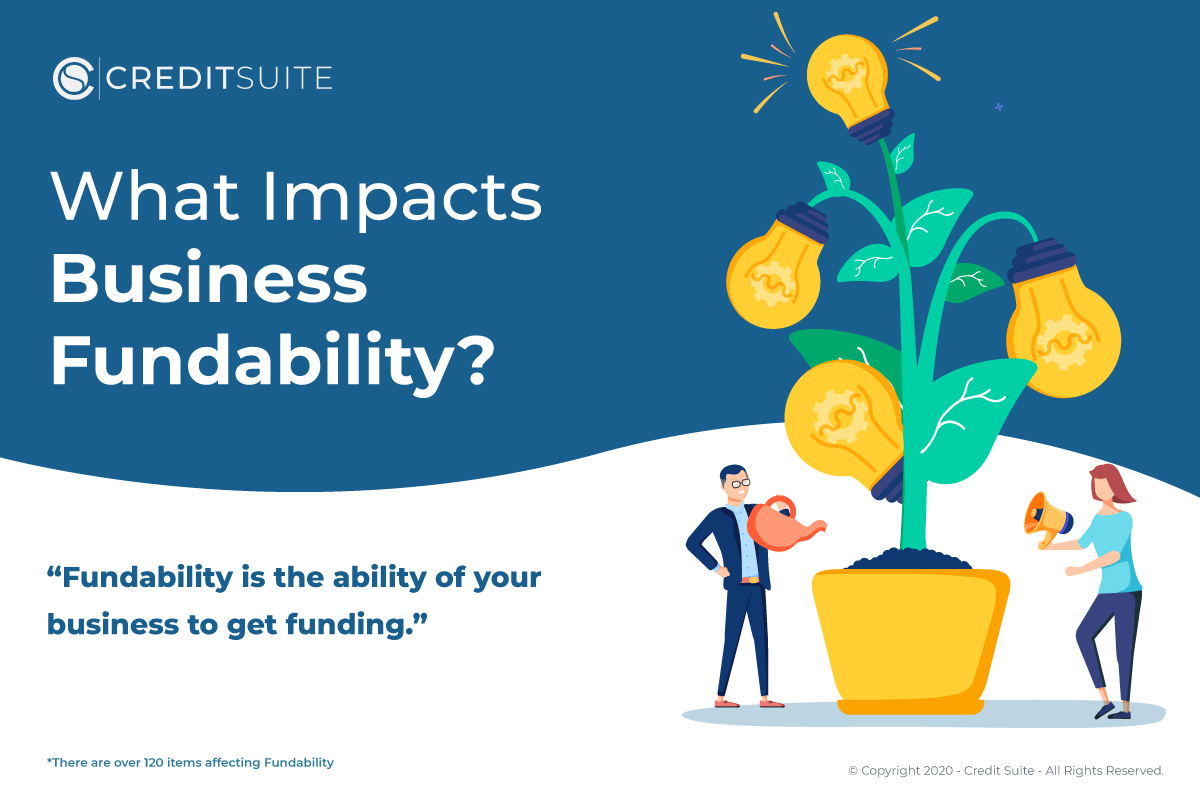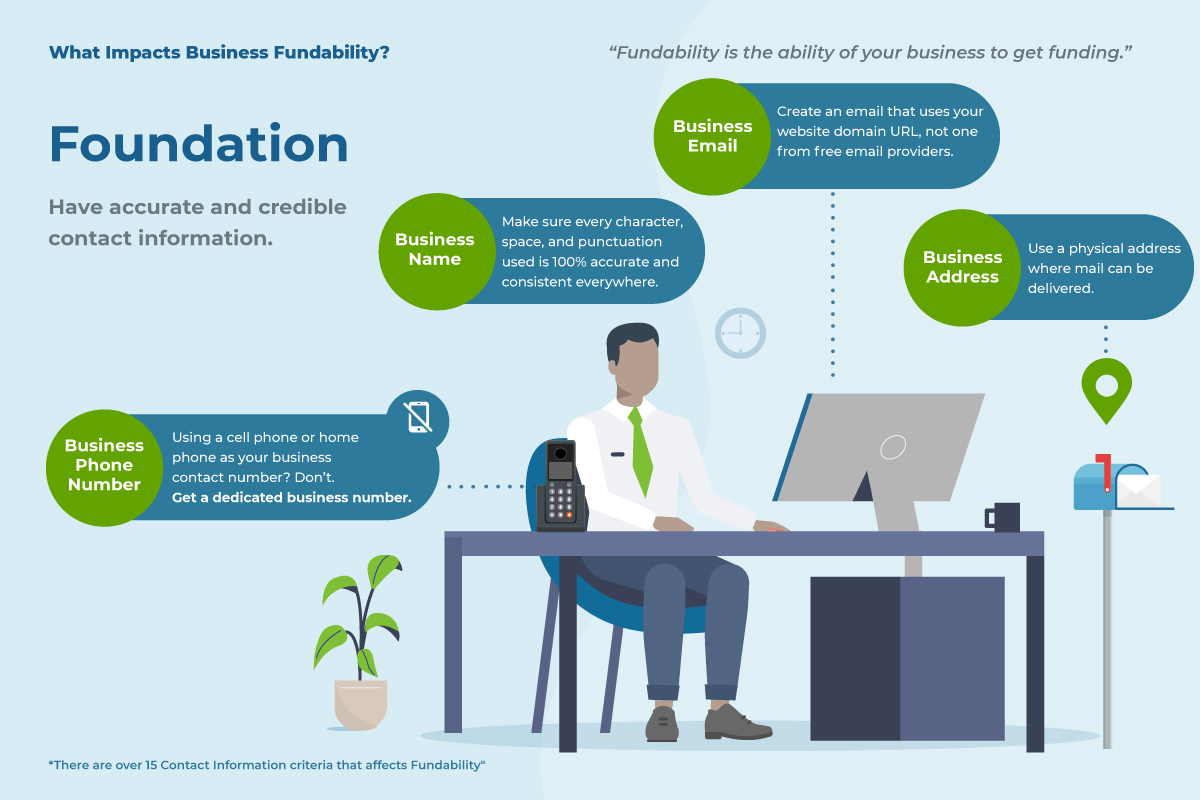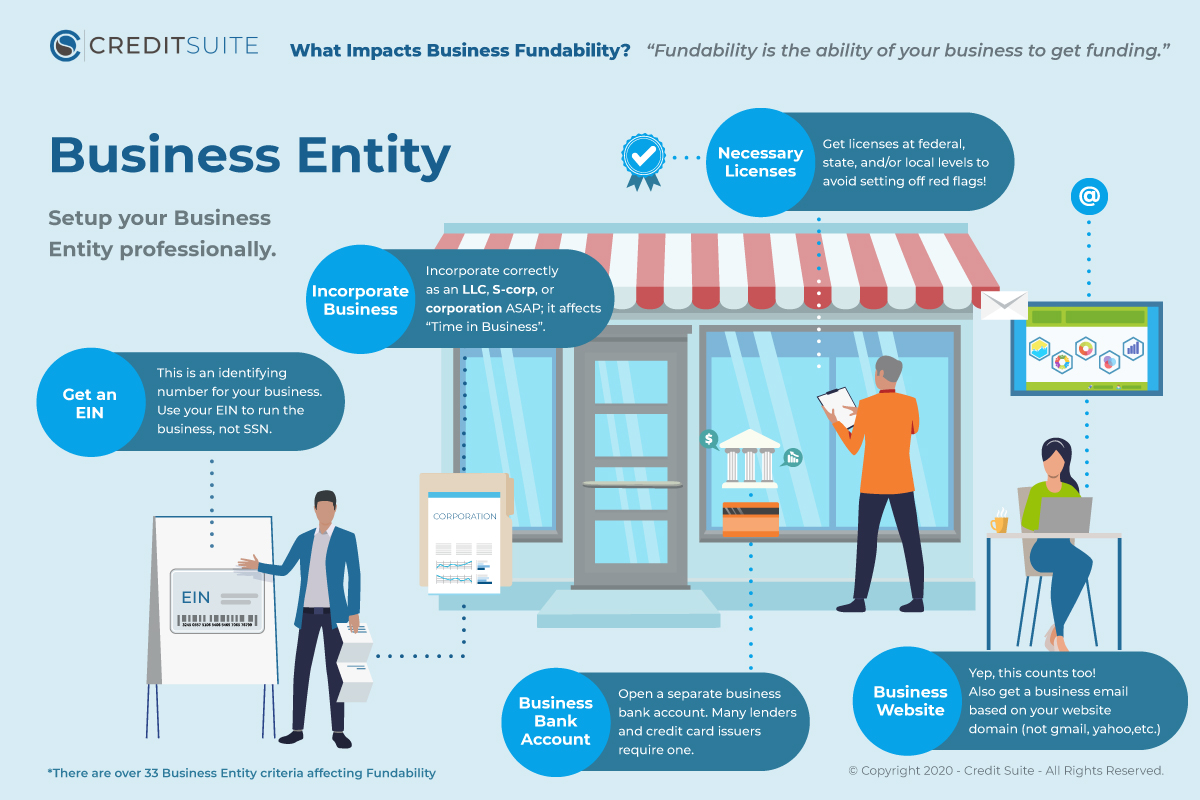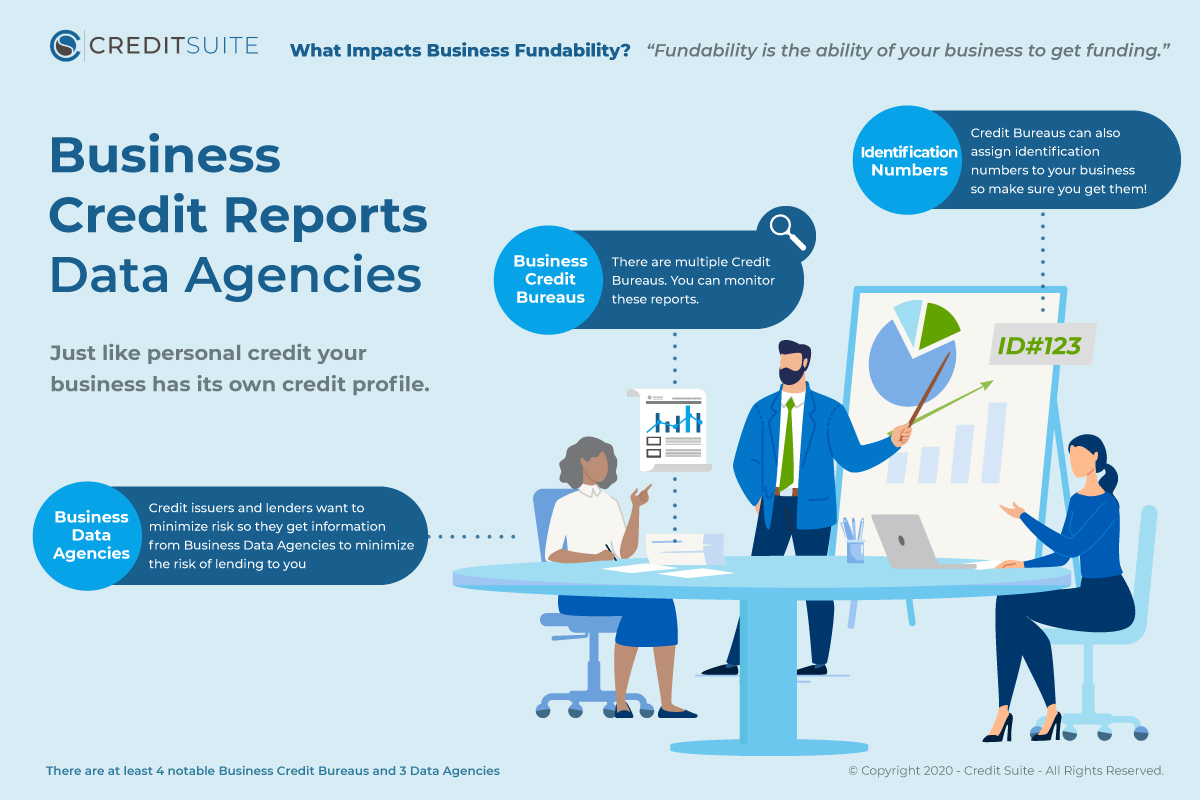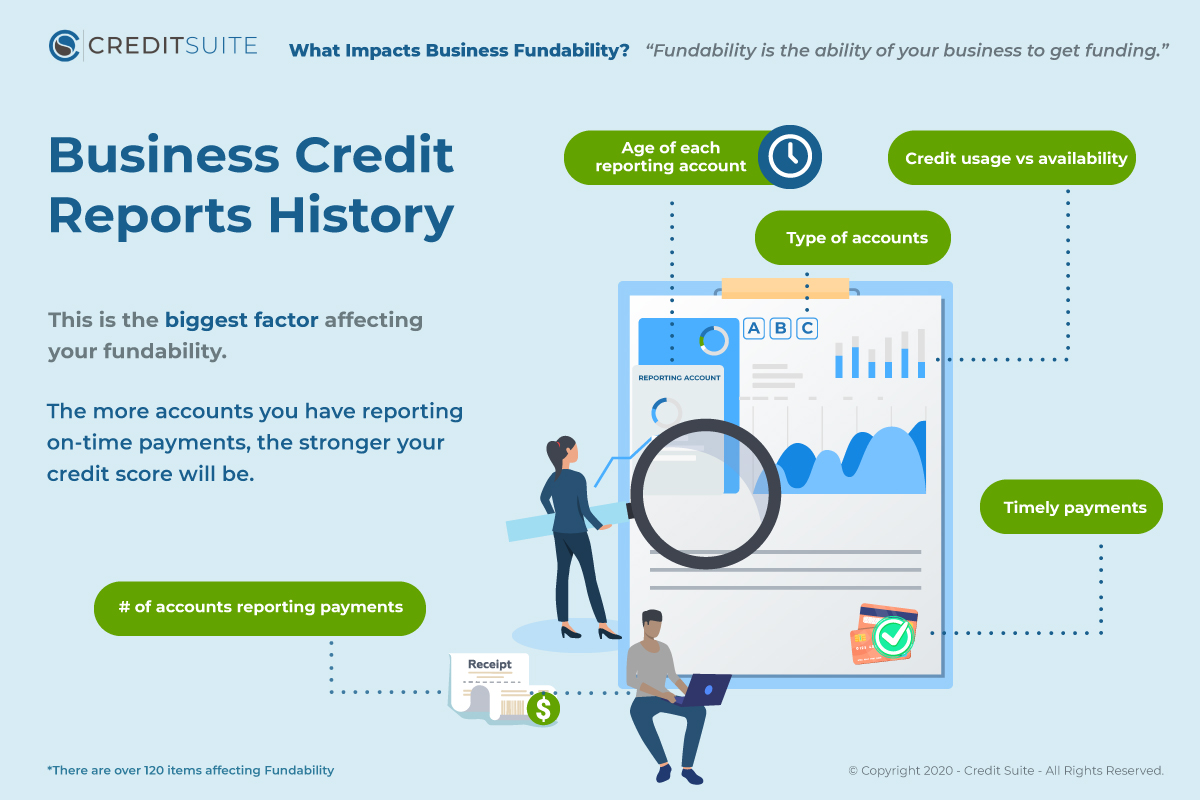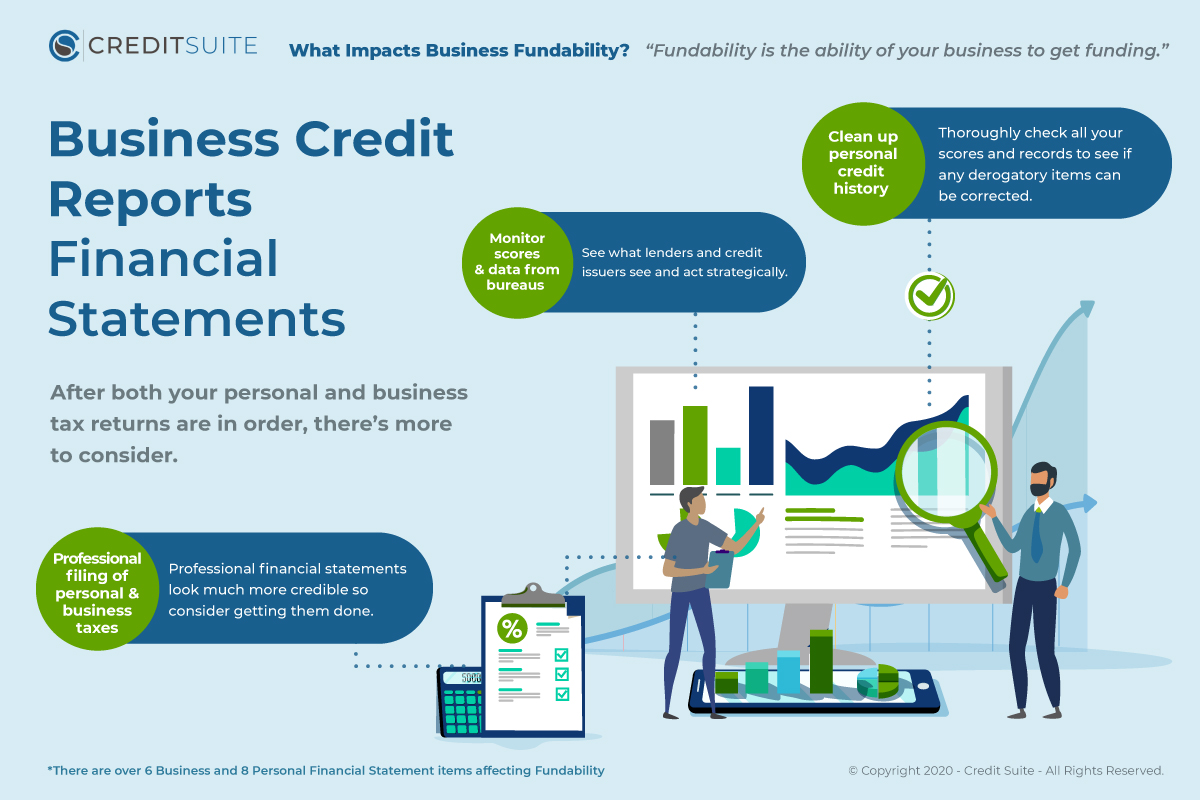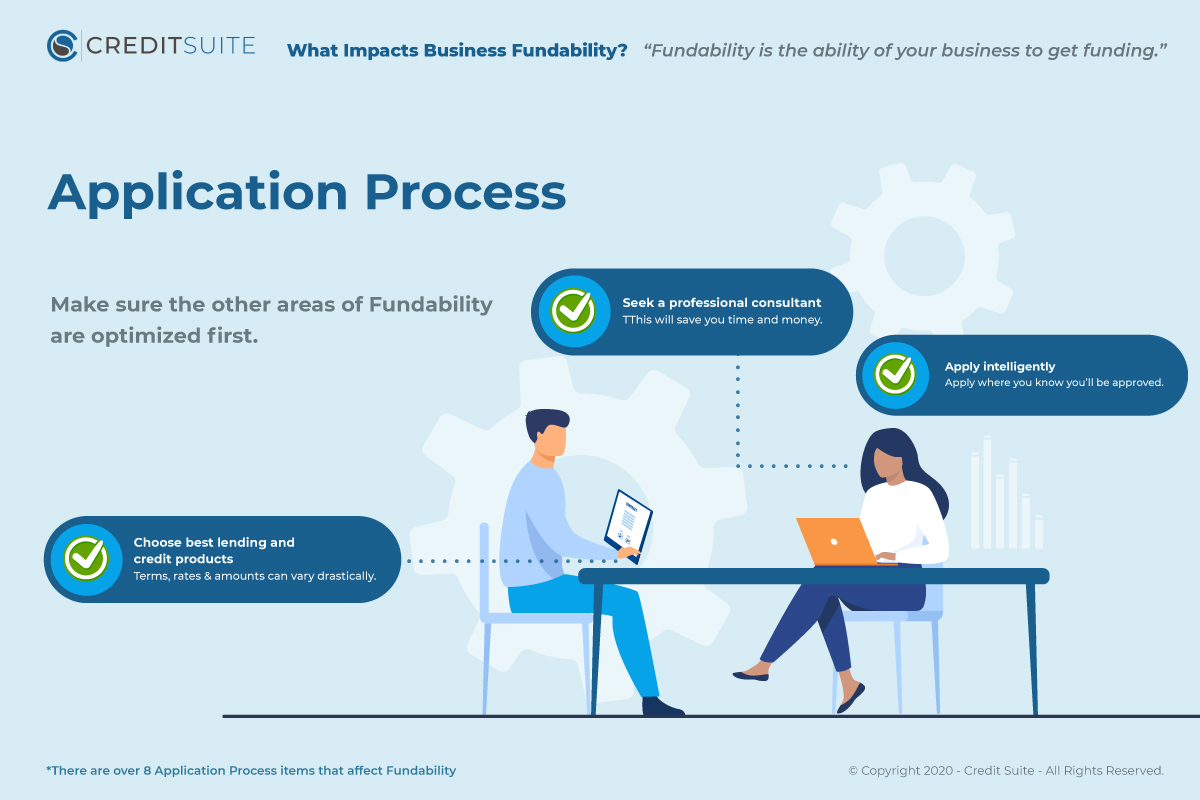As a business owner, you may be hearing the word “Fundability” a lot. It may come from lenders, various media platforms, or your own current creditors. What is Fundability? In the simplest terms, it is a business’s current ability to get financing. When lenders consider funding your business, does it looking like lending to your business is a wise decision? What do they look at to make that determination?
This blog post may contain affiliate links, meaning when you click the links for some products and make a purchase, Credit Suite receives a commission at no additional cost to you.
What is Fundability and How Does a Business Become Fundable?
Okay, so if you know that Fundability is the ability to get funding for your business, what does that actually mean. Furthermore, how does a business become Fundable? A business has the ability to get funding when a lender feels lending to the business is low risk. Does your business appear to be one that can and will pay back the debt?
Lenders are in it for the money, and they need to feel they will get a return on their investment. A high credit risk is not a wise lending choice.
The question of what is Fundability is fairly easy to answer. The harder question is how does a business get Fundability? Put another way, how does a business become Fundable? What makes this answer more complicated is that there are at least 125 factors that affect Fundability.
A potential creditor needs to see that your business is legitimate and profitable. Many loan applications are denied approval due to fraud concerns. Others, simply because something didn’t match up and it made the lenders uneasy. Maybe the addresses or phone numbers didn’t match on a couple of reports. Beside the fact that lenders can see this as shady, it just looks unprofessional.
If you understand what Fundability is and how to get it, you can shut down any such red flags before they cause you problems.
What Is Fundability? The Foundation of Fundability
The foundation of Fundability is in how your business is set up. Like any foundation, it is best to start at the beginning. It will be faster and easier if you do. However, if your business is already up and running, then you may not have that option. That’s okay. It’s never too late to start, but start now. For several reasons, the longer you wait the harder it will be.
Contact Information
The first step in setting up a foundation of Fundability is to make sure your business has its own name, phone number, email, and address. It needs to be a physical address where you can receive mail, not a P.O. Box or an UPS Box.
You can get a business phone number that will work over the internet instead of phone lines. In addition, the phone number will forward to any phone you want it too so you can simply use your personal cell phone or landline if you want. Whenever someone calls your business number it will ring straight to you.
Business phone providers we love include Ring Central, Call Hippo, and phone.com.
You’ll also need an office. Virtual office providers we love include Davinci Virtual, Alliance Virtual Offices, and Opus Virtual Offices.
EIN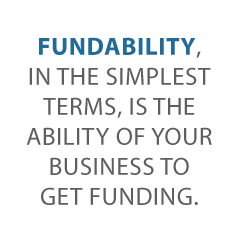
The next thing you need to do is get an EIN for your business. This is an identifying number for your business that works similar to how your SSN works for you personally. Some business owners use their SSN for their business. This is what a lot of sole proprietorships and partnerships do.
However, it really doesn’t look professional to lenders, and it can cause your personal and business credit to get all mixed up. When you are looking to increase Fundability, you need to apply for and use an EIN. You can get one for free from the IRS.
Incorporate
This is the most important step in Fundability thus far. Incorporating your business as an LLC, S-corp, or corporation is necessary to Fundability. It lends credence to your business as one that is legitimate. It also offers some protection from liability.
Which option you choose does not matter as much for Fundability as it does for your budget and needs for liability protection. The best thing to do is talk to your attorney or a tax professional. What is going to happen is that you are going to lose the time in business that you have. When you incorporate, you become a new entity. You basically have to start over. You’ll also lose any positive payment history you may have accumulated as well.
This is why you have to incorporate as soon as possible. Not only is it necessary for Fundability and for building business credit, but so is time in business. The longer you have been in business the more Fundable you appear to be. That starts on the date of incorporation, regardless of when you actually started doing business.
Incorporating services we love include Northwest Registered Agent, Laughlin USA’s Business Incorporation & LLC formation, My Corp (Deluxe Business Service), and Rocket Lawyer.
Business Bank Account
You have to open a separate, dedicated business bank account. There are a few reasons for this. First, it will help you keep track of business finances. It will also help you keep them separate from personal finances for tax purposes.
We love North One for business banking.
There’s more to it however. There are several types of funding you cannot get without a business bank account. Many lenders and credit cards want to see one with a minimum average balance. In addition, you cannot get a merchant account without a business account at a bank. That means, you cannot take credit cards payments. Studies show consumers tend to spend more when they can pay by credit card.
And from banking there will always be a need for accounting, expense management, payroll, and taxes. For accounting services, we love Bench Accounting’s Online bookkeeping services and Action Accounting. And for your books, we feel that QuickBooks Online for Partners is the gold standard.
Licenses
What is Fundability? Among other things, it is being a legitimate business. For a business to be legitimate it has to have all of the necessary licenses it needs to run. If it doesn’t, red flags are going to fly up all over the place. Do the research you need to do to ensure you have all of the licenses necessary to legitimately run your business at the federal, state, and local levels.
Website
These days, you do not exist if you do not have a website. However, having a poorly put together website can be even worse. It is the first impression you make on many, and if it appears to be unprofessional it will not bode well for you with consumers or potential lenders.
Spend the time and money necessary to ensure your website is professionally designed and works well. Pay for hosting too. Avoid using a free hosting service like Weebly or Wix. Along these same lines, your business needs a dedicated business email address. Make sure it has the same URL as your Website. Don’t use a free service such as Yahoo or Gmail.
We love The HOTH: White Label Marketing Services for SEO. And we also love Crowdfire for social media management. PixelMe is great for advertising on Amazon.
What is Fundability? Business Credit Reports
The next step in answering the question of what is Fundability is to consider your business credit report. What is that you ask? That is the credit report, much like your consumer credit report, that details the credit history of your business. It is a tool to help lenders determine how credit worthy your business is.
Where do business credit reports come from? There are a lot of different places, but the main ones are Dun & Bradstreet, Experian, Equifax, and FICO SBSS. Since you have no way of knowing which one your lender will choose, you need to make sure all of these reports are up to date and accurate.
Other Business Data Agencies
In addition to the business credit reporting agencies that directly calculate and issue credit reports, there are other business data agencies that affect those reports indirectly. Two examples of this are LexisNexis and The Small Business Finance Exchange. These two agencies gather data from a variety of sources, including public records.
This means they could even have access to information relating to automobile accidents and liens. While you may not be able to access or change the data the agencies have on your business, you can ensure that any new information they receive is positive. Enough positive information can help counteract any negative information from the past.
Identification Numbers
In addition to the EIN, there are identifying numbers that go along with your business credit reports. When considering what is Fundability, you need to be aware that these numbers exists. Some of them are simply assigned by the agency, like the Experian BIN. One, however, you have to apply to get. It is absolutely necessary that you do this.
Dun & Bradstreet is the largest and most commonly used business credit reporting agency. Every credit file in their database has a D-U-N-S number. To get a D-U-N-S number, you have to apply for one through the D&B website.
What is Fundability: Business Credit History
This is where the rubber meets the road when it comes to credit reports. Your credit history has everything to do with everything related to your credit score, which is a huge factor in the Fundability of your business.
Your credit history consists of a number of things including:
- How many accounts are reporting payments?
- How long have you had each account?
- What type of accounts are they?
- How much credit are you using on each account versus how much is available?
- Are you making your payments on these accounts consistently on-time?
The more accounts you have reporting on-time payments, the stronger your credit score will be.
For net 30 and other business credit building accounts, we have a lot of favorites. We recommend (among others) Lenovo – Lenovo for laptops, PCs, tablets & data center, Office Garner – Office Garner for business supplies and products under NET 30 terms, and The CEO Creative NET 30 tradelines.
Business Information
On the surface, it seems obvious that all of your business information should be the same across the board everywhere you use it. However, when you start changing things up like adding a business phone number and address or incorporating, you may find that some things slip through the cracks.
This is a problem because a ton of loan applications are turned down each year due to fraud concerns simply because business information is inconsistent. Maybe your business licenses have your personal address but now you have a business address. You have to change it. Perhaps some of your credit accounts have a slightly different name or a different phone number listed than what is on your loan application.
Even something as small as using an ampersand in one place and the word “and” in another can cause issues. Do your insurances all have the correct information? Is your industry listed correctly, and consistently, across all platforms and documents?
The key to this piece of the business Fundability is to monitor your business credit reports frequently.
What is Fundability in Financial Statements?
This encompasses a broad spectrum of things. First, there is the obvious. Both your personal and business tax returns need to be in order. Of course, you need to be paying all of your taxes also.
Business Financials
It is best to have an accounting professional prepare regular financial statements for your business. Having an accountant’s name on financial statements lends credence to the legitimacy of your business. If you cannot afford this monthly or quarterly, at least have professional statements prepared annually. Then, they are at the ready whenever you need to apply for a loan.
Personal Financials
Often tax returns for the previous three years will suffice. Get a tax professional to prepare them. This is the bare minimum you will need. Other information lenders may ask for include check stubs and bank statements, among other things.
Bureaus
There are several other agencies that hold information related to your personal finances that you need to know about. Everyone knows about FICO. Your personal FICO score needs to be as strong as possible. It really can affect business Fundability and almost all traditional lenders will look at personal credit in addition to business credit.
In addition to FICO reporting personal credit, you have ChexSystems. They keep up with bad check activity, which makes a difference when it comes to your bank score. If you have too many bad checks, you will not be able to open a bank account. That will cause serious Fundability issues.
Everything is fair game. Have you ever been convicted of a crime? Do you have a bankruptcy or short sell on your record? How about liens or UCC filings? All of this can and will play into the Fundability of your business.
Personal Credit History
Your personal credit scores from Experian, Equifax, and TransUnion all make a difference. You have to pay attention to your personal credit score for obvious reasons, but also because it will affect the Fundability of your business. If it isn’t great right now, get to work on it. The number one way to get a strong personal credit score or improve a weak one is to make payments consistently on time.
Also, make sure you monitor your personal credit regularly to ensure mistakes are corrected and that there are no fraudulent accounts being reported.
What is Fundability: the Application Process
This is a surprise to most, but even the application process can affect your ability to get funding, First, consider the timing of the application. Is your business currently Fundable? If not, do some work before you apply to increase Fundability. Next, make certain that your business name, business address, and ownership status are all verifiable. Lenders will check.
Lastly, make sure you choose the right lending product for your business and your needs. Do you need a traditional loan or a line of credit? Would a working capital loan or expansion loan work best for your business? Choosing the right product to apply for can make all the difference.
What is Fundability? It’s Everything!
The quick answer to “What is Fundability?” is simple. You can even be fundable in a recession!
However, when you dig a little deeper there are so many layers that crisscross it can take some time to unravel. It’s more like a ball of yarn than an onion really. Everything is connected, everything matters, and one kink can stop the whole thing. Now is the time to take a closer look at the Fundability of your business do whatever you can to increase it.


